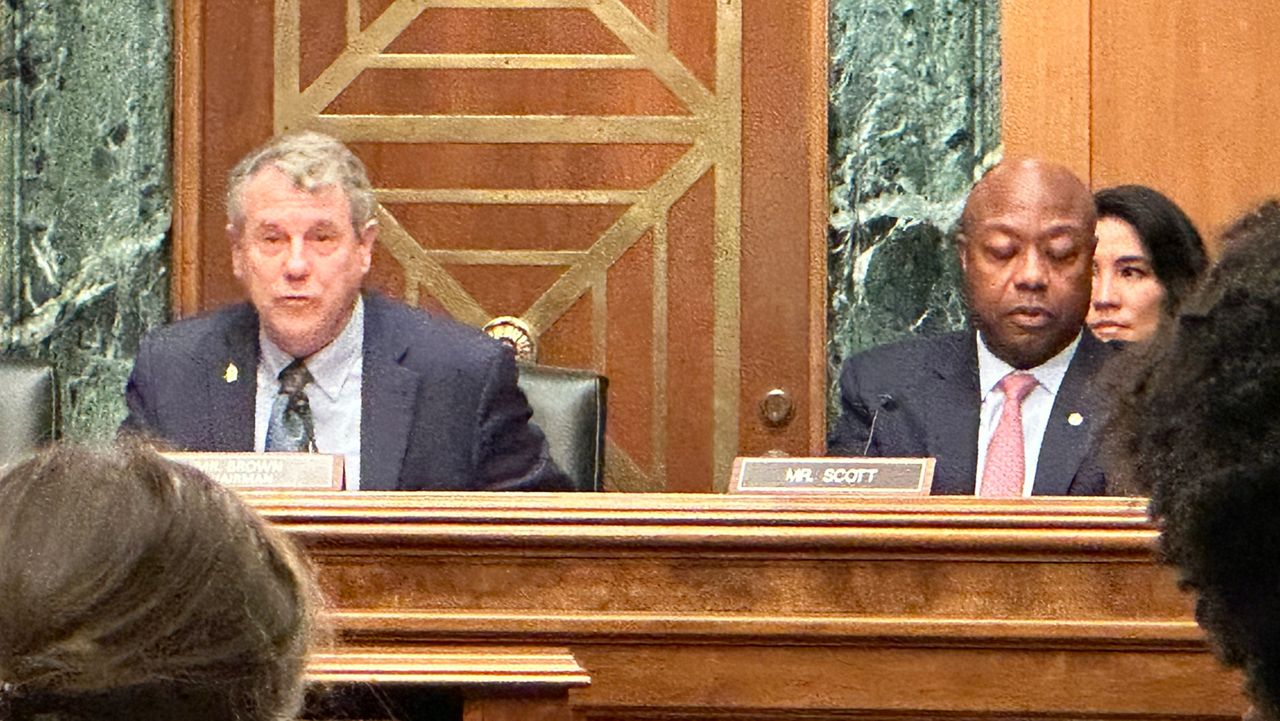WASHINGTON, D.C. — Electric vehicle drivers in southern Ohio will soon have access to more charging stations, thanks to a federal grant.
What You Need To Know
- A regional initiative led by Athens, Ohio won $12.5 million to build EV charging stations from Athens to Dayton
- The funds comes from the Bipartisan Infrastructure Law, which allocated $7.5 billion to build EV charging stations across the country
- The grant was written with the help of a nonprofit that helps small- and medium-size cities apply and win federal infrastructure funding
The City of Athens, Ohio, led a regional initiative under the Southeast Ohio Public Energy Council that was awarded $12.5 million to install 58 EV charging stations from Athens to Dayton. The stations will include 224 medium-speed and 66 high-speed charging ports in total.
The grant award came in the wake of other large EV charging projects that largely excluded southern Ohio.
In December, Ohio opened its first EV charging station funded by the Bipartisan Infrastructure Law, which allocated $7.5 billion to build EV charging infrastructure across the country. In Ohio, $140 million of that money will go to construct 50 EV charging stations in the next five years across the state under the National Electric Vehicle Infrastructure (NEVI) program.
Due to the fact that the charging stations are located exclusively along federally designated "EV corridors," a significant portion of southern Ohio was excluded from receiving them.
“The whole southern part of the state was really being left out of that opportunity,” said Athens Mayor Steve Patterson.
Other federal funds were available, including $700 million to build EV charging infrastructure.
Getting those funds requires meeting certain requirements and writing a proper grant proposal. Employees of the Athens City government—overseeing a population of 24,000 people—did not have the same resources and grant-writing experience as employees of larger city governments.
“For a city of our size, it’s something that we can be challenged by, at times,” said Athens deputy service-safety director Andrew Chiki. “We don’t have a dedicated grant writer on our staff.”
Mayor Patterson had heard of a non-profit that teaches employees of small and medium-size cities how to apply for and win infrastructure grants.
The Local Infrastructure Hub offers free online bootcamps to learn grant-writing skills, as well as individualized help with grant applications. The nonprofit is funded by Bloomberg Philanthropies, the Ford Foundation, and other philanthropies.
“There’s a lot of appetite within these communities. You see, their heart is tremendously in this,” said Jaime Lavin, senior program manager for the Government Innovation program at Bloomberg Philanthropies. “We’re just helping them translate that inspiration into knowhow and then into the dollars.”
After attending a months-long bootcamp on EV charging grant-writing, Chiki realized Athens’ grant would be more likely to succeed if it included other municipalities in the region. Athens ultimately recruited another 27 partners to participate in the project, which won millions more than Chiki originally thought it would need.
“If we were to ask ourselves, it would have been around $1 million,” he said. “So thinking about how that has grown is really exciting.”
Athens officials said the 40 chargers coming to the city would benefit not just residents, but the region’s entire outdoors and tourism communities.
“Charging anxiety is a real thing when someone is planning their trip and they have an EV. There are more and more EVs that we’re seeing on the roads these days,” Patterson said.
The project is currently seeking a contractor to install the EV chargers, which are scheduled to be in place by summer 2025.
Patterson said the city government is already building on its success by thinking ahead to other grants to which it could apply. For example, once EV chargers are installed, perhaps the city could apply for funds to buy more electric school buses.










